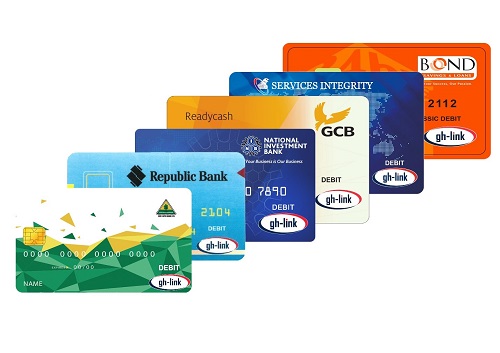ACH Direct Credit volume goes up - Report ( Ghanaweb)
 There is a gradual shift in preference for Direct Credit while patronage for cheques is on the decline, a report from the Ghana Interbank Payment and Settlement System (GhIPSS) has shown.The first quarter industry performance for electronic payments compiled by the GhIPSS shows a marginal decline in the use of cheques.
There is a gradual shift in preference for Direct Credit while patronage for cheques is on the decline, a report from the Ghana Interbank Payment and Settlement System (GhIPSS) has shown.The first quarter industry performance for electronic payments compiled by the GhIPSS shows a marginal decline in the use of cheques.
It said although cheques remained the most used non-cash form of payment, the volume of transactions for the first quarter of 2019, dropped compared to the same period last year.
On the other hand, the volume of Direct Credit transactions for the first quarter of 2019 was marginally higher than the volume for the same period in 2018.Patronage for Direct Credit went up by about 4.2 percent to 1.47 million transactions but that of cheques dropped by 7.4 percent to 1.55 million transactions.
Experts attribute the continuous growth in patronage for Direct Credit to the fact that its usage is less cumbersome compared to cheques.Also, a growing number of organisations have shifted to Direct Credit for payment of salaries and other emoluments because it is quicker and easier to use in making bulk payments.
Mr. Archie Hesse, the Chief Executive of GhIPSS, said globally, Direct Credit was preferred to cheque because of the obvious advantages it has over cheques.He, therefore, encouraged organisations as well as individuals to turn to Direct Credit for their payments.Mr. Hesse, however, added that Direct Credit was more useful for bulk payments.Direct Credit, which is one of the two forms of Automated Clearing House (ACH), is a simple, secured and reliable service, which enables individuals, large and small organisations to make payments by electronic transfer directly into a bank account.
It involves a debit to an account in the sender´s bank and a transfer of the amount of money directly into the beneficiary´s account in another bank.The electronic nature of the Direct Credit makes disbursement of bulk funds quicker, safer, more secure and requires less effort and saves time. It also enables intended recipients to receive their funds on time.Direct Credit is used for payment of salaries, pensions, welfare benefits, commissions, supplier payments, dividend and refunds among others. It is also suitable for interest payments, government payments, as well as business-to-business payments.

 Banks that issue domestic cards have made some progress in converting them from magnetic stripes to Europay, MasterCard, Visa (EMV), the global standard for chip-based Debit and Credit Card transactions.
Banks that issue domestic cards have made some progress in converting them from magnetic stripes to Europay, MasterCard, Visa (EMV), the global standard for chip-based Debit and Credit Card transactions.